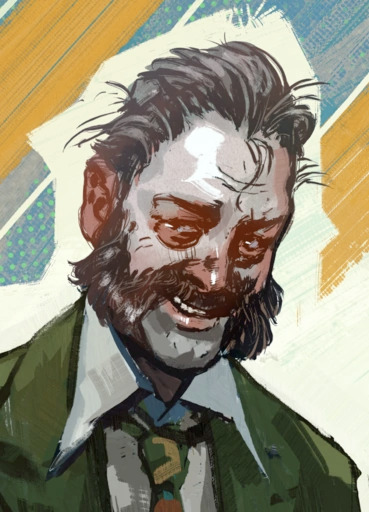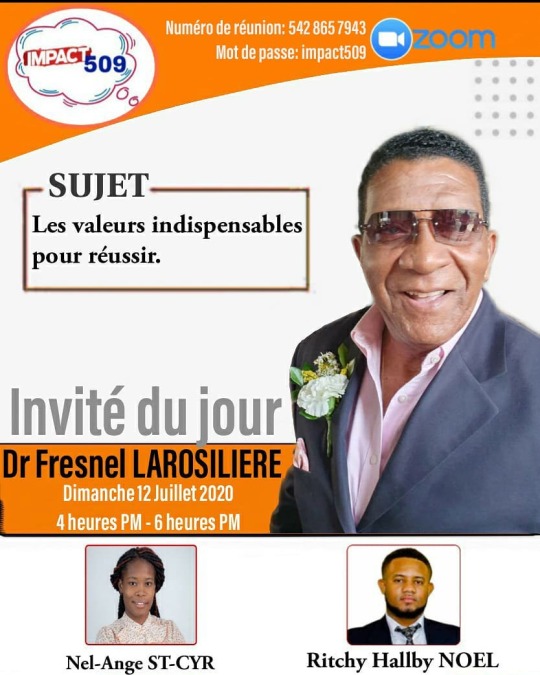#lenations
Text
men i find hot

this guy (why????)

he
Like everyone TMA (especially Peter)

tree??????

every gender

uhhh
#i dont#reallly have#an exp#lenation#the rat speaks#long post#bloodborne#tma#disco elysium#ds1#ds3#bcs#brba#im not sorry actually i promised i was gonna be hornier on main you guys just have to accept the type of guy i am into (gross and/or femboy)#griffith berserk was nearly here too but i thiought that was going too far#so was gus fring who i left out for similar reasons#they are all my baby girls#OH AND THE ANCESTOR DARKEST DUNGEON
21 notes
·
View notes
Text
Uh oh! This is is the program that originally made Yudkowsky worry about the computer in somebody's basement going FOOM and killing us all with nanotech. Like an ancient source of forbidden knowledge ("I'm glad the source code isn't published and I don't think you'd be doing a service to the human species by trying to reimplement it") breaking loose after Lenat is no longer alive to guard it...
50 notes
·
View notes
Text
How about a few more words for Imperial Erinaen/Traveler Talk? Real needed shit.
Ec-gi: a formal greeting, used when speaking to locals of a new area, speaking to individuals of higher social status (elders and spirits mostly), meeting someone for the first time, when in formal settings, and answering calls
Esi: a casual greeting, used in all situations excepting the prior listed
Lechat/Lenat: a singular and a plural farewell, best translated as 'be safe'
Also have added redoubling for emphasis to the language, so all of the above can be repeated so as to be, kinda more. 'Ec-gi-ec-gi' to show you really respect somebody (so, spirits and shit more than anything), 'esi-esi' to show you are very happy to see someone, 'lechat-lechat/lenat-lenat' as a 'for the love of fuck please be safe'.
Kevin has gotten 'lechat-lechat'ed a lot.
3 notes
·
View notes
Text
Day 4: Irish names
Irish people often have a lot of names. It’s a side effect of the Catholicism. However, there exists a secret name many people have and never use. It is our Irish name. Irish names are only ever used in Irish class in primary school and in Irish orals in secondary school. Do you want an Irish name? Sure you do, we're on the transgender website where people hoard names like they’re made of gold!
First names:
If your name is already Irish, congratulations! You have it easy! You can change the spelling slightly to remove some of the anglicisation, like turning Owen to Eoghain, but essentially you are excused from this exercise. Scroll down below to maybe think about your Irish surname, because, yes in Irish class your entire identity is changed.
If you have a name that could be described as “Extremely common”, congratulations there's probably a conversion between your name and an Irish name. Please keep in mind, you are thinking about what was common in Ireland like fifty years ago, not what is popular in America at the moment.
Wikipedia inexplicably has a really great resource on irish names, just use ctrl+F to search for your name and see if its included in the list, and if there are several that you could use, just choose the one you like most. https://en.wikipedia.org/wiki/List_of_Irish-language_given_names
If your name is neither of those things, you get to have fun. A lot of “official” conversions are really just names that sound a little similar. Daithí is not really the Irish for David, they are just two boys' names that start similarly. Look at a list of Irish names and choose one that vaguely resembles your own. The usual conversion involves the name starting with the same letter and containing the same number of syllables.
Surnames:
One often does not choose one's own Irish surname, nor is it passed through families (unless one is directly descended from celtic royalty in which case what are you doing here?). One’s Irish surname is thrust upon you by your primary school teacher as they try to name a roomful of children. There does not seem to be any rhyme or reason to who gets what name, and there certainly is no consistency between siblings.
The traditional surnames of Ireland use the Mac or the Ó systems. Mac means “son of/descendant of'' and its feminine version is Nic, and its married version is Bean Mhic. Ó means “grandson of/descendant of” and its feminine version is Ní, and its married version is Bean Uí. For Ó surnames, a h is applied before the name, for example Ó hThe Bean in both the married name versions can be omitted leaving them as Mhic and Uí respectively.
So if your fathers name is Daniel, your surname could be Mac Daniel, or Nic Daniel, and if you are married and your father-in-law is called Daniel, you can be called Bean Mhic Daniel (lit. wife of the son of Daniel).
There are some applications of grammatical contexts that would change the name (Mac system surnames put the name following it into the genitive, and feminine surnames apply lenation, and surnames starting with vowels take a lowercase h when using the Ó prefix but not its derivatives) but you don’t have to worry about that if you do not want to.
As both the Mac and the Ó systems both also mean ancestor, you can go a bit further afield for taking your Irish surname. For example one of my great great grandmothers was called Ophelia, so I could take my name to be Mac Opheilia.
Technically De surnames are of Norman descent, but they are fairly common as Irish surnames. For example, my Irish surname is de Bruin. De Bruin usually translates as Brown. My surname is not Brown, or Byrne, or anything of the sort. De Bruin does not sound anything like my actual surname, and I only share this surname with one family member. There are three surnames in the group of four people in my immediate family that remember their irish surnames.
What I’m saying is that you can go buck wild choosing an Irish surname, if you so desire one. Look at a list of surnames, just pick one that contains a vowel sound that's kinda similar to one in your name, if you squint and say it weirdly, or steal the name of the coolest ancestor you know of.
AAAAAAAAAAAnd finally, if you don't want an Irish name, and want to be referred to by your legal/normal name when speaking Irish, that's totally okay. You don't need to use a different name for every language you speak, just do what feels right for you.
Tags: @charlataninred @rusalkaandtheshepherdgirl @unseeliethot @grimalkinsquill (ask to be added or removed)
#snag 2023#is mise an crann#I totally did not finish writing this at quarter to 4#why would you imply such a thing#also yes my irish name is Ruadhán de Bruin but dont call me that outside of the very specific context of talking in irish#scheduled post
15 notes
·
View notes
Text
Adaptação Teatral de "Misery – Louca Obsessão", de Stephen King, Retorna a São Paulo para Terceira Temporada
Dirigida por Eric Lenat, a adaptação teatral de “Miséria – Louca Obsessão”, de Stephen King, depois de atrair mais de 40 mil espectadores, retorna ao Teatro TUCA em São Paulo para uma nova temporada, de 19 janeiro a 31 março de 2024.
Adaptação Teatral de “Misery – Louca Obsessão”, de Stephen King, Retorna a São Paulo para Terceira Temporada
Desde sua estreia em 2022 o espetáculo “Misery – Louca Obsessão” foi responsável por levar aos teatros brasileiros mais de 40 mil espectadores, baseado no romance de Stephen King, “Misery – Louca Obsessão“, retorna ao Teatro TUCA em São Paulo para uma nova temporada.Sob a direção de Eric…

View On WordPress
0 notes
Text
Douglas Lenat, Who Tried to Make Computers More Human, Dies at 72
#CraigBrownPhD: https://www.nytimes.com/2023/09/04/technology/douglas-lenat-dead.html?utm_source=dlvr.it&utm_medium=tumblr
0 notes
Link
He spent decades working on artificial intelligence, striving to create computers that could replicate common sense. #AI #ML #Automation
0 notes
Text
Remembering Doug Lenat (1950–2023) and His Quest to Capture the World with Logic
https://writings.stephenwolfram.com/2023/09/remembering-doug-lenat-1950-2023-and-his-quest-to-capture-the-world-with-logic/
0 notes
Text
Antonio Velardo shares: Douglas Lenat, Who Tried to Make Computers More Human, Dies at 72 by Cade Metz
By Cade Metz
He spent decades working on artificial intelligence, striving to create machines that could replicate common sense.
Published: September 4, 2023 at 02:04PM
from NYT Technology https://ift.tt/kPoEV8w
via IFTTT

View On WordPress
0 notes
Text
Lentate (MB), i Carabinieri arrestano "il Miliardario" che aveva sconvolto gli abitanti di Lenate sul Seveso

Lentate (MB), i Carabinieri arrestano "il Miliardario" che aveva sconvolto gli abitanti di Lenate sul Seveso.
I carabinieri della Stazione di Lentate sul Seveso hanno rintracciato e arrestato a Como un 39enne lentatese, celibe, nullafacente, con precedenti per rapina, lesioni personali aggravate e spaccio di stupefacenti, nei confronti del quale è arrivata la pena definitiva per una rapina commessa il 30 luglio 2021 in un bar di Lentate sul Seveso. Quel giorno, poco prima delle 14.00, l’allora 37enne, dopo essere entrato nel bar dove era presento la sola barista, una donna di 47 anni, ha prima provato a farle aprire il registratore di cassa dicendole “apri la cassa, se mi dai venti euro, te ne do venti”. Poi, vista la resistenza della donna, ha improvvisamente estratto un coltello e, dopo averla minacciata, ha strappato via i cavi del registratore di cassa portandolo vie e fuggendo con la sua Audi A3 nera. Ma la fuga era durata poco perché l’uomo, descritto come “un ragazzo basso, magro con capelli neri e che sembrava molto strano, come se avesse assunto sostanze stupefacenti” durante il tragitto evasivo, non si era accorto di essere a corto di carburante e, giunto alle porte di Misinto, dopo soli due chilometri, era stato costretto ad accostare e farsi venire a prendere. Dai genitori.
Immediatamente dopo la rapina, i carabinieri del Comando Stazione di Lentate sul Seveso si erano subito messi sulle tracce del 37enne, già noto ai militari, riuscendo in brevissimo tempo a identificarlo grazie alla descrizione piuttosto inequivocabile che era stata fornita dalla vittima. Contestualmente, il 37enne, che durante la brevissima fuga, si era anche liberato del coltello e del registratore di cassa lanciandoli dal finestrino, aveva deciso di costituirsi ed era sopraggiunto in caserma accompagnato proprio da quei genitori che poco prima lo avevano recuperato lungo la strada.
Durante gli accertamenti, i militari dell’Arma erano anche riusciti ad attribuire al rapinatore altri due eventi delittuosi dei quali si era reso protagonista avvenuti nei giorni precedenti sempre a Lentate sul Seveso. Il primo, il furto con destrezza di un blocchetto di sessanta gratta-e-vinci “Il Miliardario” – da cui l’epiteto con il quale era stato chiamato da alcuni residenti – del valore complessivo di 300 €. Anche in questa occasione aveva approcciato una donna che lavorando da sola all’interno di un bar. Il secondo episodio riguardava invece delle scritte minacciose apparse in un condominio della nota via Roma dove il 37enne intimava ai residenti di non interessarsi al fatto che lui facesse uso di cocaina avvertendo “Agli spioni gli spezzo le gambe. Sapete chi sono e io so chi siete voi!”.
L’uomo, che negli uffici dell’Arma aveva ammesso di essere l’autore sia della rapina che del furto e delle minacce anonime, allora aveva provato a giustificarsi dicendo che era tutto dovuto al fatto che assumesse cocaina. Nella circostanza era stato denunciato in stato di libertà per rapina aggravata, furto aggravato e minacce.
Nella giornata di ieri, l’oggi 39enne, condannato in via definitiva a un anno e dieci mesi di reclusione per la rapina, dopo esser stato rintracciato dai carabinieri in una palazzina del centro città a Como, è stato arrestato ed è stato trasferito nella casa circondariale del capoluogo dove sconterà la pena inflittagli, in attesa che si definisca la sua posizione per gli altri reati per i quali risulta imputato....
#notizie #news #breakingnews #cronaca #politica #eventi #sport #moda
Read the full article
0 notes
Text
Combining some thoughts written elsewhere about what many people brazenly call AI even though (assuming they know the history) they know damn well it’s anything but.
The first wave of AI (when I studied it before the "winter") was about trying to make computers understand and plan. That's why it was good in very restricted and unambiguous domains, notably games, but pretty helpless otherwise (Douglas Lenat's "cyc" notwithstanding). The current generation of "cheap and deep" AI is about trying to turn the godawful mess of real-world inputs into symbols a computer can understand and, to some degree, imitate. That's why things like ChadGPT can produce remarkably sane-sounding output, but we've been seeing that with simple Markov chains for decades all the way back to ELIZA in 1964-66. (ObNote: ELIZA had several scripts, of which the best known "doctor" one was intentionally a *parody* of Rogerian psychoanalysis. How little we've progressed.)
When someone figures out how to combine these "sensing" and "thinking" parts in a useful way, *then* maybe we'll have artificial intelligence worthy of the name. Until then it's just "fancy autocomplete" as some have put it, with the side effect of producing absolute bullshit - not lies, because these models don't know what truth even is, but authoritative-sounding statements made *without regard* for truth. Soon somebody's going to ask Chad or Brad or one of the others for medical advice, and soon after the lawsuits will start.
0 notes
Text
Les noms des pays et les nationalités
#apprendre#audiolezione#didatticaadistanza#francais#grammatica#l'allemagne#l'espagne#l'italie#lascuoladigitale#lasuisse#lecon#lecons#lefrancais#lejapon#lenations#leslangues#lessico#scuolamedia#scuolasuperiore#studenti
0 notes
Text
Day 12: Possession and Mutations
Tags: @charlataninred @rusalkaandtheshepherdgirl @bella-daonna @unseeliethot @grimalkinsquill
Written version under the cut
Dia daoibh, mo chairde! Today we will cover mutations in Irish through the possessive pronouns. Possessive pronouns are my, your, his, her, our, your (pl), and their. In Irish they are:
Mo, do, a, a, ár, bhur, a
The eagle eyed among you may have noticed that three of those words are the same. How would one tell the difference between his coat and her coat? That's where mutations come in.
Séimhiú:
Also known as lenation in English
A seimhiú is a h that slips just after the first consonant in a word and the rest of the word. This softens the sound of that first syllable, as we talked about yesterday. So “bord” (table) becomes “bhord”, and as séimhiú can also be applied to consonant clusters, “gruaig” (hair) becomes “ghruaig”. Words starting with L, N, R, H, vowels, and some S clusters (specifically SC, SM, SP, and ST) do not take a séimhiú, however every other letter does. You can remember this by the mnemonic Elenenor (L,N,R).
When do you use a séimhiú? With the prepositions do (to), faoi (under), ó (from), sa (in the) and a few others. Sa becomes san in front of vowels, and because FH is silent and sa gives it a séimhiú, we use san in front of words starting with F followed by a vowel. Eg. sa theach (in the house), san uisce (in the water), san fhuineóg (in the window). They also occur in some circumstances with verbs and numbers. Do not worry about this for now.
What we care about now is how they work with possessive pronouns. Words after mo (my), do (your singular), a (his) all take a séimhiú. For the sake of example I will use the word cotá which is coat, so my coat would be “mo chota”. Also notice how in yesterday’s seanfhocail, “tinteán” goes to “do thinteán”, and to open this lesson I said “mo chairde” when friends is normally just cairde. Once you begin to notice how séimhiú works you will see them everywhere, which is good for learning how to use it.
Urú
Or eclipses in English
An urú is a letter that goes before a word, eclipsing or overshadowing the original first letter. The letter a word takes as an urú is dependent on its first letter. Not all letters take an urú. A mnemonic for remembering urú is given below:
My Brother
Got Caught
Not Doing
Dishes Tonight
Nobody Gets
Blueberry Pie
Before He Finishes
Or for a word starting with B, such as bord, gets an urú of an M, forming “mbord”, so on so forth. Again, this works for consonant clusters too, so gruaig becomes ngrauig. The only notable thing from the mnemonic is the last line, as words beginning with F get an urú of BH, such as “bhfinneog”.
When do you use urú? Well it goes after many prepositions when paired with the definite article “an”. “Ag an” (belonging to the), ar an (on the), leis an (with the), faoin (under the), and ón (from the) all apply urú. Urús are also applied after the word i (in), which like sa becomes in before a vowel. And again, some situations of counting and verbs take urú, however we will come back to this.
So we use urú when we are talking about ár (our), bhur (your) and a (their) stuff, meaning our coat is “ár gcotá”.
What about a (her)? Well the word just stays the same, so it would be “a cota”.
For words beginning in a vowel, such as “each” for horse, there are different rules. Mo and do drop their Os and become m’ and d’, forming “m’each” and “d’each”. A (his) does nothing, “a each”, a (hers) adds a “h” to the front of the word “a heach”, and ár, bhur, and a (their) add an “n-” to form “ár n-each”, “bhur n-each”, and “a n-each”.
And what if you wanted to describe possession without a possessive pronoun? How would one say “the man’s coat”? Well, you would say “cota an fhir”. However the word for man is usually “fear” not “fir”. The noun that the object belongs to is put into the tuiseal ginideach, or the genitive case. We have a whole lesson on the genitive coming up so do not worry about it for now.
Unfortunately, the only way to get good at using mutations is to practice. You will just have to make a conscious effort to notice which words take urú or séimhiú when reading and when writing.
Final test! If geata means gate, how would you say your (sing) gate, or your (pl) gate. And what does “a geata” mean?
Today’s seanfhocail is “Aithníonn ciaróg ciaróg eile” which means “One beetle recognises another beetle” or “Takes one to know one”.
I’ll see you tomorrow for the evil, but necessary, world of how to conjugate verbs. Slán libh!
#SnaG 2023#is mise an crann#egg kointa#scheduled post#gaeilge#you can kinda tell i needed to cough halfway through BUT YOU CANNOT tell that i paused the recording to do that#anyway this is the best recording i could get#the other one that was technically better had a 5 second silence in the middle as i tried to remember the word dash#and thats after i called it an apostrophe AND a colon
7 notes
·
View notes
Photo

15 notes
·
View notes
Text
Douglas Lenat, Who Tried to Make Computers More Human, Dies at 72
#CraigBrownPhD: https://www.nytimes.com/2023/09/04/technology/douglas-lenat-dead.html?utm_source=dlvr.it&utm_medium=tumblr
0 notes
Photo

"Les valeurs indispensables pour réussir." Impact 509 vous donne rendez-vous ce Dimanche 12 Juillet 2020 à 4 heures PM - 6 heures PM avec le Dr Fresnel LAROSILIERE, aussi connu sur son nom d'acteur "Père Démerand" dans "I Love You Anne" et "We Love you Anne". "Ansanm nou ka fè Impact" #juno7 #tedactu #chokarella #lenational #lenouvelliste #ticketmagazine #motivation #inspiration #inspirationalquotes #instaday #instaworld #haitianbusiness #haitianamerican #lunionsuite #impact509 #instagood #instadaily #instapost #instapicture #instalike #instagrammers #insta #inspire #haiti https://www.instagram.com/p/CCWJqnqgVYO/?igshid=1rue0821o7fa9
#juno7#tedactu#chokarella#lenational#lenouvelliste#ticketmagazine#motivation#inspiration#inspirationalquotes#instaday#instaworld#haitianbusiness#haitianamerican#lunionsuite#impact509#instagood#instadaily#instapost#instapicture#instalike#instagrammers#insta#inspire#haiti
0 notes